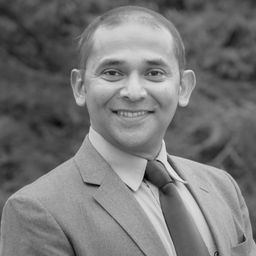Tawsif Dowla Title : Sociocultural integration of resettled refugees through tourism
Mon statut pour la session
by
Tawsif Dowla
Through this research, I explored the potential of utilizing 'tourism' to facilitate the resettled
refugees' sociocultural integration into their new country. Using a mixed and multimethod
approach with a realist social-constructionist perspective, I began this research by exploring the
social reality surrounding various stages of refugee resettlement. Subsequently, I inquired about
tourism's applicability in fostering refugees' sociocultural integration, informed by article one of
UNWTO Global Code of Ethics, "contribute to mutual understanding and respect between
peoples and societies." A range of multidisciplinary sources with theoretical and empirical
underpinnings formed the basis of my inquiries. For the primary research, I have used semi and
unstructured interviews and participatory action research in commensuration with the
juxtaposition of three participating entities, a) refugees, b) refugee-serving agencies, c) the
tourism community. Subsequently, through the triangulation of data generated through primary
and secondary research, I have formulated a comprehensive analysis of the potential for
incorporating tourism within the integration process involving all participating entities.
The fact that instigated this research is, despite the government and its agencies' concerted
resettlement effort, the initial happiness and fascination amongst the refugees upon arrival to
their new country are short-lived. After the first six months, some research suggests that as the
refugees begin to encounter unemployment, deskilling, cultural variance, or public
misconception, to name a few, they begin to feel disappointed, confused and irritated. Depending
on the individual level of resilience in the face of life exigencies, while refugees gradually
recover and eventually accept and adjust to society, many increasingly distance themselves from
the host community and congregate in ethnic silos for economic, social and cultural protection.
During such a state of disappointment, confusion, or irritation, as both primary and secondary research findings point out, refugees ought to participate in societal activities even in the face of
challenges while upholding their cultural integrity.
The research participants from all three entities concurred that tourism can be a catalyst to
sociocultural integration by nurturing refugees' shifting sense of place and self. Most research
participants from the refugee community and refugee-serving agencies stated that visiting sites
(near or far) and meeting new people could create unique spaces for inclusion. While supporting
the novel concept, some participants from the tourism community also expressed their
skepticism about its actualization in the absence of a sustainable, practical framework. Keeping
such inherent challenges in mind, I am proposing a conceptual framework for tourism's
involvement in sociocultural integration. Concurrent to various stages of resettlement, this
framework outlines the gradual progression of tourism intervention in augmenting refugee
integration. My research findings suggest that if intervened starting as early within the first three
months from refugee arrival, tourism experiences can optimize their happiness and fascination
stage while minimizing disappointment, confusion or frustration. If proceeded methodically,
during the subsequent stages, tourism experiences can improve refugees' resilience to navigate
through the successive stages of gradual recovery, adjustment, and acceptance. Upon conversing
with members from the participating entities, I discovered a willingness to support an endeavour
such as this if a comprehensive approach is undertaken through mutual involvement towards
collective improvement. Through this conceptual framework, I have also outlined a tentative
timeline for monitoring the change in the participating refugees' wellbeing to compare that with
the nonparticipants'.
